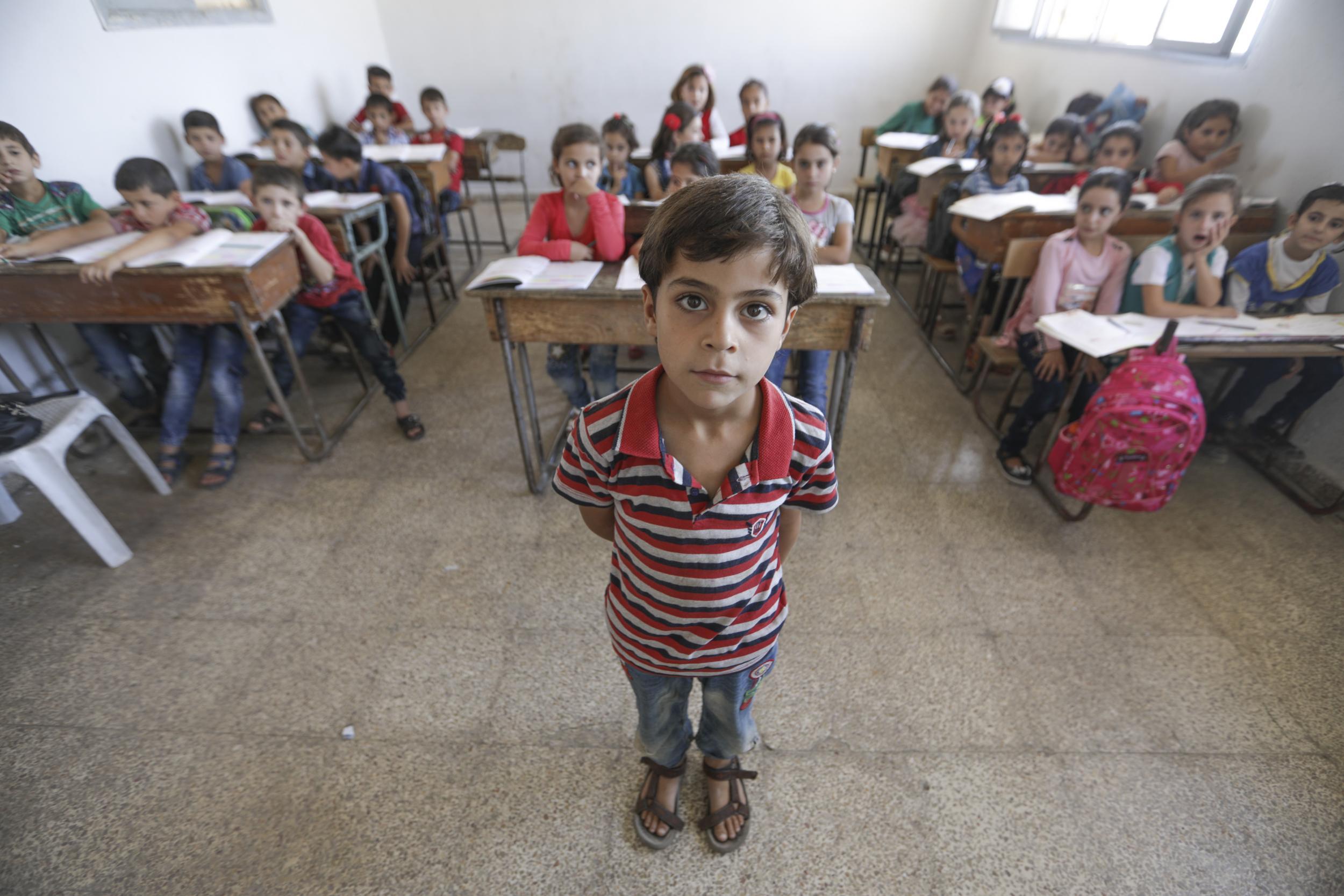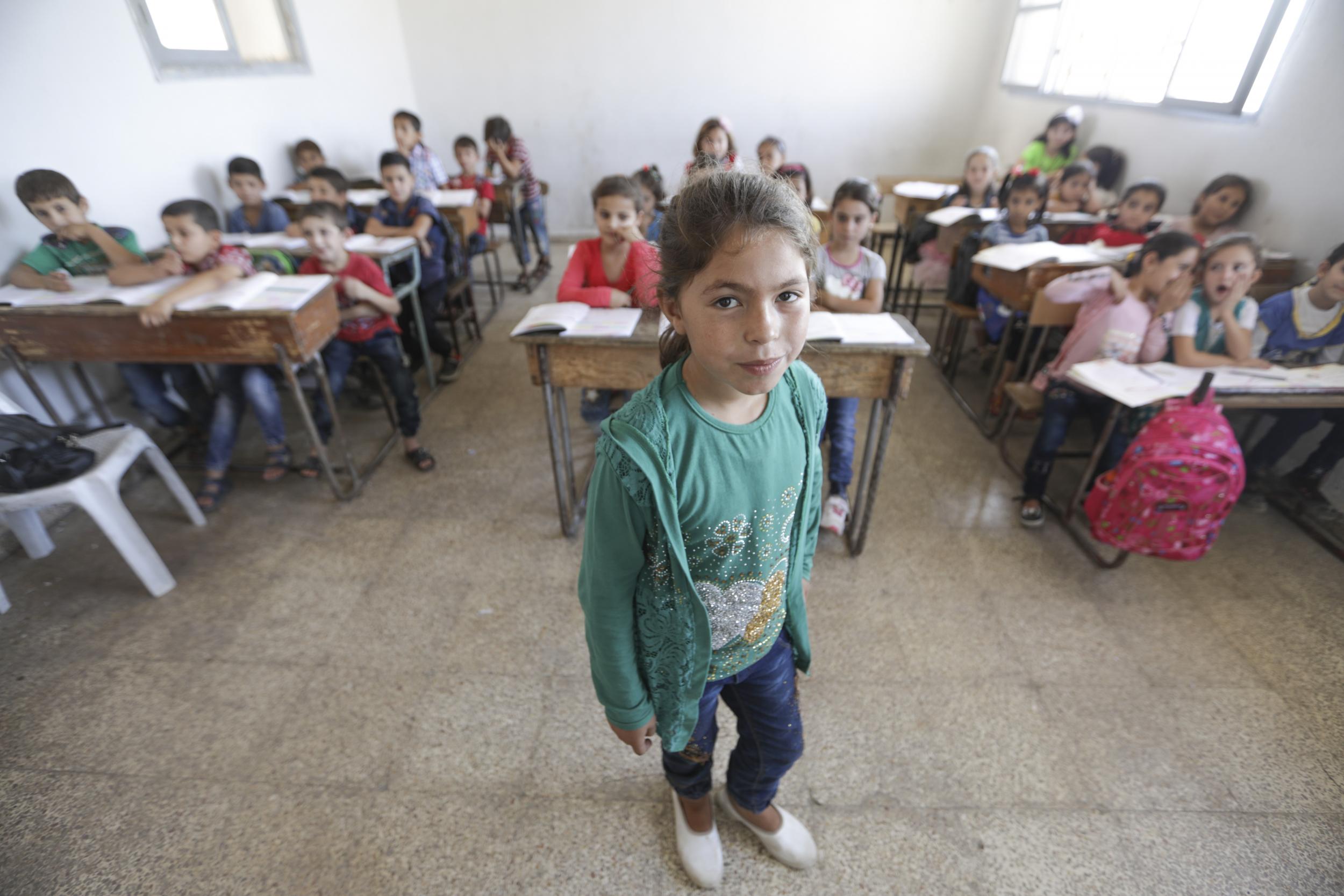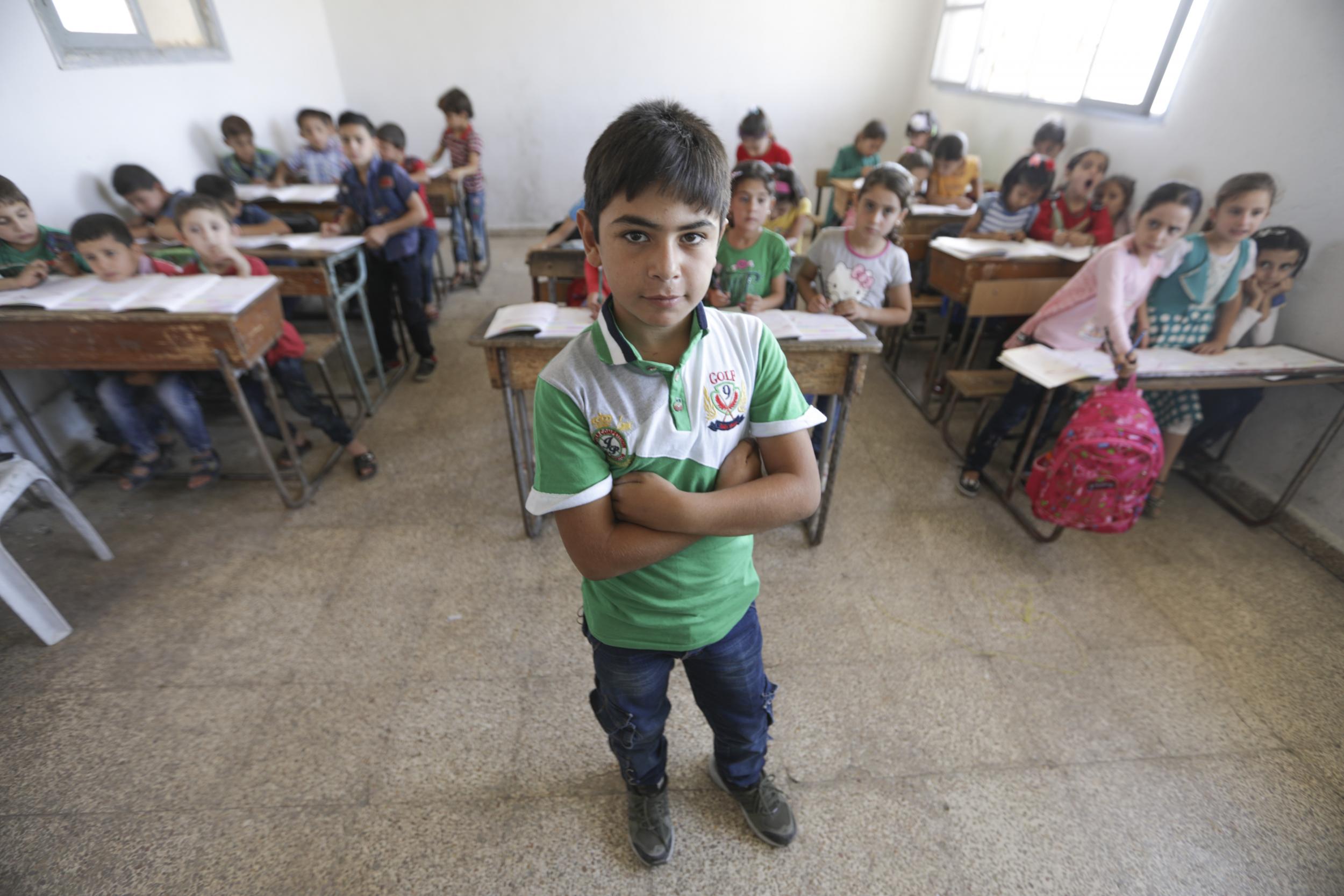One million children at risk if Idlib truce does not hold, warns the UN
Children now based in Idlib, one of the rebels’ last remaining strongholds in Syria, have been displaced multiple times due to the fighting and are in danger if a regime offensive goes ahead

The United Nations has warned that a million children in Idlib, Syria are at risk if a shaky truce collapses and a regime offensive goes ahead, while limited humanitarian access is still a “serious concern”.
The northwestern province is one of the last remaining rebel strongholds in Syria and is home to the highest number of internally displaced children in the country, Unicef told The Independent. Anti-government forces, including rebels and jihadis, have been effectively corralled into the region through a string of evacuation deals as President Assad’s forces have taken control of swathes of territory.
Turkey and Russia, which are backing opposite sides of the civil war, have brokered a tense truce.
Under the agreement, Russian and Turkish forces will run a 15km-deep demilitarised buffer zone between the insurgents and government forces. However, it is dependent on the withdrawal of armed “radicals” like al-Qaeda affiliated groups by 15 October.
The UN said on Thursday that many of the children in Idlib have been multiply displaced during the seven-year civil war and are at risk.
“Idlib has one of the highest numbers of internally displaced children in the country. Many have been displaced on multiple occasions and across Idlib, Unicef estimates that 1 million children are currently at risk,” Unicef, the UN’s child agency, said.
“Limited humanitarian access is still a big concern and Unicef is working with local partners in Idlib, western Aleppo and northern Hama to deliver lifesaving assistance and respond to the displacement of civilians,” it added.
Unicef said that many schools have had to shut down due to an uptick in violence. More than 2,000 teaching positions are vacant and nearly 7,000 classrooms need rehabilitation.
Children in the besieged area spoke of fleeing multiple war zones, being terrified of the impending offensive and dropping out of school because of the war.
“For the last two years, we have been moving from one place to the next to run away from fighting,” said Ulfat, nine, who was originally from rural Hama but has fled three separate towns.
“I’m in second grade but I should be in fourth. I had to drop out of school when we left Hama,” she added.
Abdullah, eight, said he was “afraid of the sounds of war” and hides when he hears the planes or helicopters coming.
“When I hear the explosions, I run away and hide. I used to run to our neighbour’s house because they have a basement to hide in,” he said. The little boy is from Aleppo but fled to Raqqa and then Idlib eight months ago.
Ridda, 12, said his seven-year-old sister was injured during one regime offensive by shrapnel to her neck.
“I am afraid of war and fighting. I don’t know what we will do or where we will go if the fighting starts here,” he said.

Maryam, seven, also said she did not know what would happen if the fighting starts up again.
“My parents say we might have to move again and go to Turkey if this happens.”
The UN estimates some 3 million people live in Idlib today, double the population of the governorate before the civil war broke out in 2011. It has warned that more than 800,000 could be forced to flee if an attack happens.
However, Russian president Vladimir Putin said on Wednesday that he believed the demilitarised zone in Idlib was effective and would hold.
“I have every reason to believe that we will achieve our goals,” Mr Putin said. “Military action for the sake of military action is unnecessary,” he added.

Syrian foreign minister Walid al-Moualem said on Tuesday that Damascus believed “Turkey is capable of carrying out its obligations” in Idlib.
Turkey has long backed rebel groups opposed to Assad but has joined Russia in recent months in seeking a diplomatic solution to the conflict.
However, cracks have shown in the agreement. The rebels have rejected plans for a joint Russian-Turkish patrol of the area, as they are deeply distrustful of Moscow since it intervened in 2015 to back President Assad.

Moscow has ordered that all opposition heavy weapons, mortars, tanks and rocket systems are to be removed from the zone by 10 October. But rebel leaders have said they are keeping their weapons as they do not trust the Russians and expect “they won’t abide by the deal at any moment”.
It is also unclear if the “radical” insurgents will withdraw by the 15 October deadline.
The main jihadi group in the Idlib area, Tahrir al-Sham, affiliated with al-Qaeda, has yet to say whether it will comply with the agreement.
Join our commenting forum
Join thought-provoking conversations, follow other Independent readers and see their replies
Comments
Bookmark popover
Removed from bookmarks